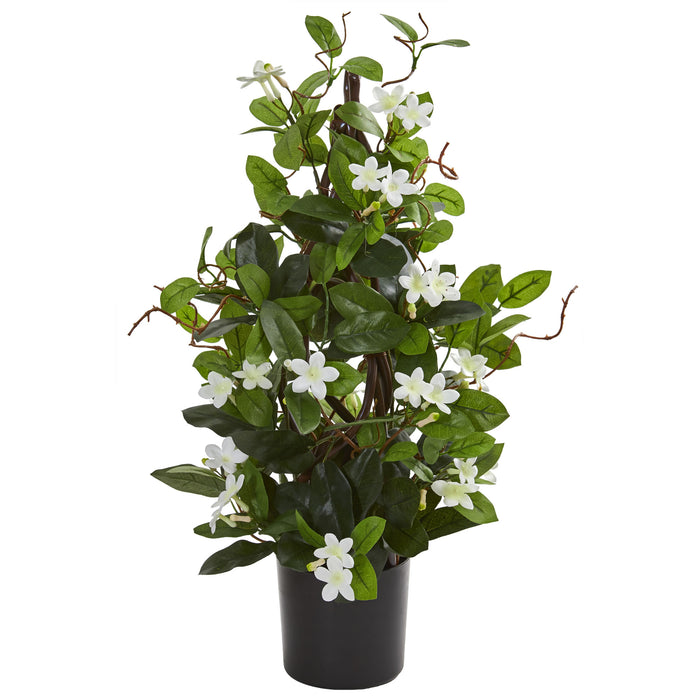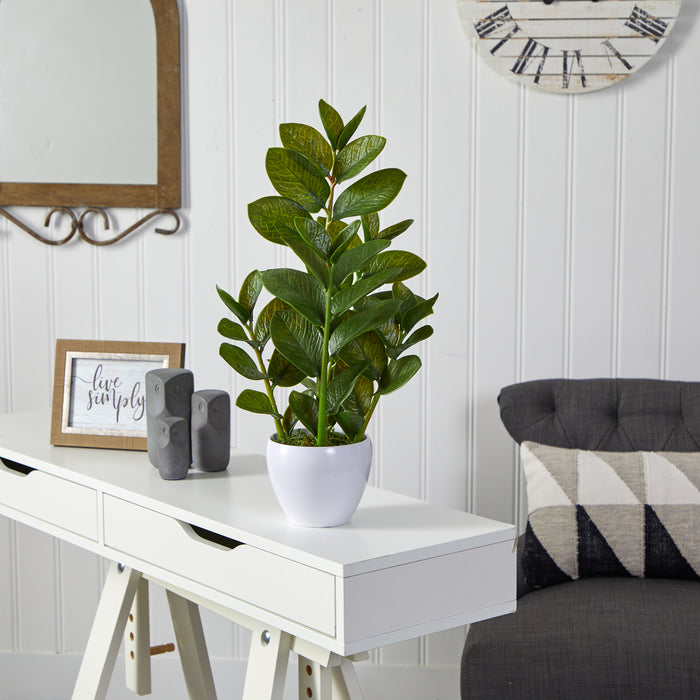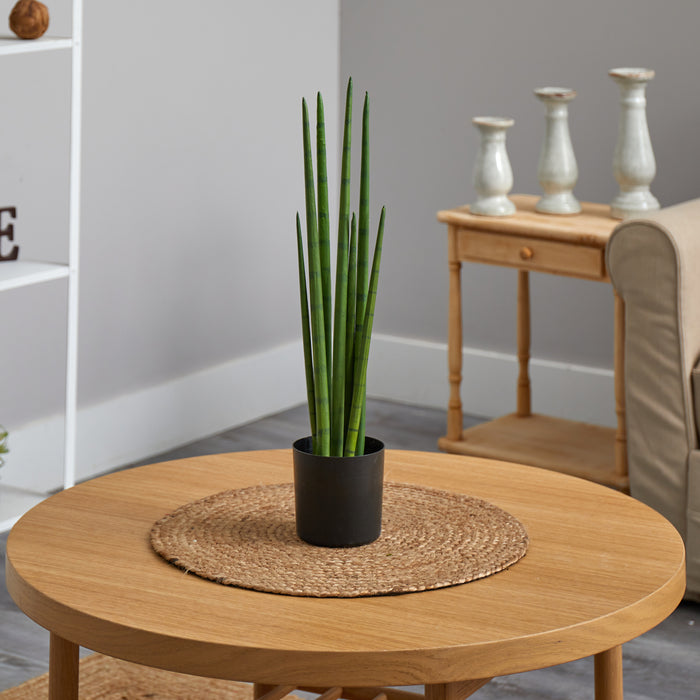
HOW TO CHOOSE AND ARRANGE HOUSEPLANTS FOR MAXIMUM IMPACT
Houseplants can transform your home into a lush, vibrant sanctuary, adding beauty and improving air quality. Choosing and arranging houseplants for maximum impact requires a bit of planning and creativity. Here are some tips to help you create a stunning indoor garden that enhances your living space.
Start by selecting the right houseplants for your home. Consider the lighting conditions of each room and choose plants that thrive in those environments. Low-light plants like snake plants and pothos are ideal for dim corners, while bright, sunny spots are perfect for succulents and fiddle leaf figs. Assess your lifestyle and select low-maintenance plants if you have a busy schedule or are new to plant care.
24” STEPHANOTIS ARTIFICIAL CLIMBING PLANT (LINK)
Once you've chosen your plants, think about the arrangement. Group plants with similar care requirements together to make maintenance easier. Vary the heights and sizes of your plants to create visual interest. Tall plants like monstera or rubber trees can serve as focal points, while smaller plants like aloe vera or spider plants can fill in gaps and add texture.
22” ZAMIOCULCAS ARTIFICIAL PLANT IN WHITE PLANTER (LINK)
Consider the containers you use for your houseplants. Stylish pots and planters can enhance the overall aesthetic and complement your interior decor. Choose containers that provide adequate drainage to prevent overwatering. Mixing and matching different styles and materials, such as ceramic, terracotta, and woven baskets, can add depth and personality to your arrangement.
Create layers and levels to maximize impact. Use plant stands, shelves, and hanging planters to elevate your plants and make use of vertical space. This not only adds dimension to your arrangement but also helps to distribute light more evenly, ensuring each plant gets the light it needs.
23” SANSEVIERIA SNAKE ARTIFICIAL PLANT (LINK)
Pay attention to the placement of your houseplants. Place larger plants in corners or near windows to draw the eye and create a sense of balance. Use smaller plants to adorn side tables, shelves, and countertops. For a cohesive look, repeat similar plants or containers throughout the space.
Incorporate plants into your existing decor by using them to highlight architectural features or complement your color scheme. For example, place trailing plants on top of bookshelves to soften edges or use colorful foliage to accentuate a neutral palette.

Leave a comment